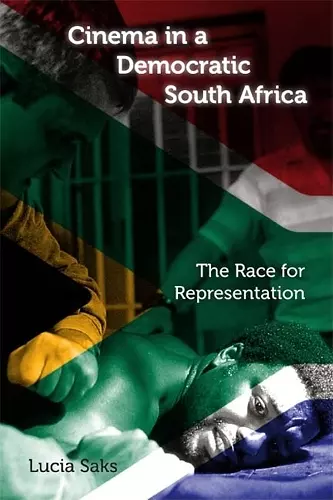Cinema in a Democratic South Africa
The Race for Representation
Format:Paperback
Publisher:Indiana University Press
Published:19th Jul '10
Currently unavailable, and unfortunately no date known when it will be back

Film and race at the end of apartheid
Using South African cinema as a lens through which to view cultural changes resulting from the end of apartheid in 1994, this title examines how media transformed the meaning of race and nation during this period and argues that, as apartheid was disbanded and new racial constructs allowed, South Africa quickly sought a new mode of representation.
Lucia Saks uses South African cinema as a lens through which to view cultural changes resulting from the end of apartheid in 1994. She examines how media transformed the meaning of race and nation during this period and argues that, as apartheid was disbanded and new racial constructs allowed, South Africa quickly sought a new mode of representation as a way to distance itself from the violence and racism of the half-century prior, as well as to demonstrate stability amid social disruption. This rapid search for a new way to identify and portray itself is what Saks refers to as the race for representation. She contextualizes this race in terms of South African history, the media, apartheid, sexuality, the economy, community, early South African cinema, and finally speculates about the future of "counter-cinema" in present-day South Africa.
"... an important and pathbreaking contribution to film studies and to the literature on South African cinema.... No monograph or piece of individual scholarship of this kind exists on cinema in postapartheid South Africa." —Sean Jacobs, University of Michigan
ISBN: 9780253221865
Dimensions: 235mm x 155mm x 19mm
Weight: 431g
272 pages